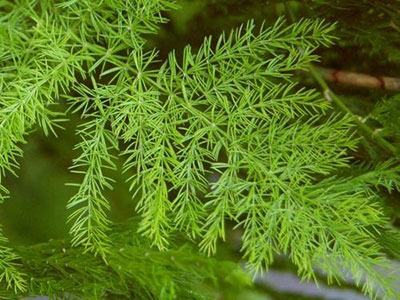
Overview
Its botanical name is asparagus racemosus wild and belong to Liliaceae family. Asparagus is a woody climber, grows to 1-2 m high. The leaves are shaped pine needle. They are small and uniform and consist of small white flowers arranged in the form of spikes. Roots and succulent, finger-shaped, tuberous and clustered.
Distribution
It is distributed throughout tropical and subtropical India.
Names of Asparagus Racemosus
Asparagus is known by various other names:-
- Hindi – Shatavari
- English – Buttermilk Root, Wild Asparagus, Climbing Asparagus.
What are it’s Chemical Constituents?
It consists of various phytochemical constituents. Root consists of sarsasapogenin, fruits consist of b-sitosterol, sarsasapogenin, diogenin, and asparagine A and B and leave consists of flavonoids, rutin.
What are the Types of Asparagus Racemosus?
It is mainly of two types
- Shatavari (Asparagus Racemosus)
- Maha Shatavari (asparagus Sarmentosus Linn)
What is Said in Ayurveda about this Herb?
- It is said to be medhya, a plant which improves learning ability and memory.
- It is called rasayana, as it rejuvenates body and boosts up the immunity improving overall health. It supports vitality and resistance against stress and diseases.
- Balya, which means strength promoter.
- Stanya – as it promotes lactation.
What are its Therapeutic Benefits?
- Asparagus racemosus has been used in Ayurveda since ages for treating dyspepsia, gastric ulcers, and various other health problems.
- It is used to treat fertility (male and female) and help to increase the lactation. It calms the mind and induces sleep.
- It is used in ailments related to the reproductive system.
- It improves the body’s resistance to stress.
- It is used in various health ailments like anxiety, depression, diarrhea, tuberculosis, cancer, dementia, diabetes.
- It has a diuretic effect.
- It helps to maintain blood sugar level.
- Its juice is used in India widely to relieve a cough.
- Improves sperm motility.
- Used to treat abdominal tumors.
- Good for eyes, improves vision.
- Helps in improving memory.
- It has high nutritious content.
- It helps to withdraw alcohol.
- It reduces free radicals and detoxifies the body.
- Supports male reproductive system as well.
- Moisturizing action on the respiratory tract.
What are it’s Medicinal Properties?
- Rasa (Taste) – Sweet (Madhura), Tikta (Bitter)
- Guna (Qualities) – Guru (Heaviness), Snigdh (Oily)
- Vipaka – Changes to Taste Sweet after Digestion.
- Veerya (Potency)- Sheeta (Cold)
What is it’s Effect of Tridosha?
Balances Vata and Pitta.
Which Part is Used?
Tuberous Roots.
In What Dosage Should it be Taken?
- Juice extracted (fresh) – 10-20ml
- Decoction – 50-100m
- Powder – 3-5Gms.
How Does it Help to Treat Acne?
Due to its bitter principle and cooling nature, it helps to treat blood imbalance disorder and skin ailments like acne. Asparagus racemosus balances the hormones and hence treats acne induced due to hormonal imbalance.
What is it’s Effect on Gastric Ulcer?
Scientists have found that it as effective as ranitidine, an allopathic medicine to treat a gastric ulcer.
Can Asparagus be used to Enhance Lactation?
It is being used very effectively to enhance milk production during lactation. Nowadays it is an active ingredient in every milk enhancing medicine in the market.
Why it is Used as a Gym Supplement?
Due to its nutritive property, anti-aging effect and coolant property it can be used as a very effective gym supplement. It also relieves tiredness and maintains muscle tone.
What is its Effect on Nerves?
It is used as a nervine tonic and because of its coolant effect, it is used to treat diabetic neuropathy. It is used in diabetes and irritation of nerve causing burning in fingers.
Why it is Known as Female Tonic in Ayurveda?
In Ayurveda, it is known as a female tonic as it is used in various female reproductive ailments. Its actions are :
- Prepares womb for conception
- It enhances ovulation.
- It prevents miscarriages.
- It acts as a postpartum tonic as it enhances lactation, normalizes the size of uterus and balances the hormones.
- It is used to treat leucorrhoea
How Does it Help in Anxiety?
Asparagus produces anti-stress effects relieving stress. It lowers level of serotonin and gamma-aminobutyric acid system, which is responsible for stress and anxiety.
How Does Asparagus Racemosus Works?
Studies suggest that it has anti-oxidant and antibacterial effects, helps to improve immunity.
How Does it Help With Menopause Symptoms?
Menopause is a natural phenomenon of transiting from reproductive to the non-reproductive stage. There are symptoms like hot flushes, night sweats, palpitation, anxiety, insomnia, and irritability. In conventional treatment hormone, replacement therapies are given. These therapies in long-term have adverse effects. So to avoid these side-effects women are opting for an alternative treatment. Asparagus is a source of phytoestrogen(weaker natural estrogen in action) which takes place of estrogen in absence of estrogen and helps to relieve symptoms which are caused due to the absence of estrogen in menopause.
What are the Contradiction?
- A person having an allergy to asparagus should avoid it.
- It has a diuretic effect, so should not be taken with diuretic drugs.
- One has congestion or excess accumulation of Kapha should avoid it.
- People with estrogen sensitivity should avoid taking it.
What are it’s Side Effects?
- Women having high estrogen level, it can cause breast tenderness as it mimics estrogen and creates effects like it.
- If a person comes out to be allergic to it, symptoms produced are:
- Difficulty in breathing
- Itching in eyes.
- Rashes on skin
- Increased heart rate
- Dizziness.
If any person taking this herb observe these symptoms take immediate medical help. This Herb Should Not Be Taken Without Physician’s Supervision.
